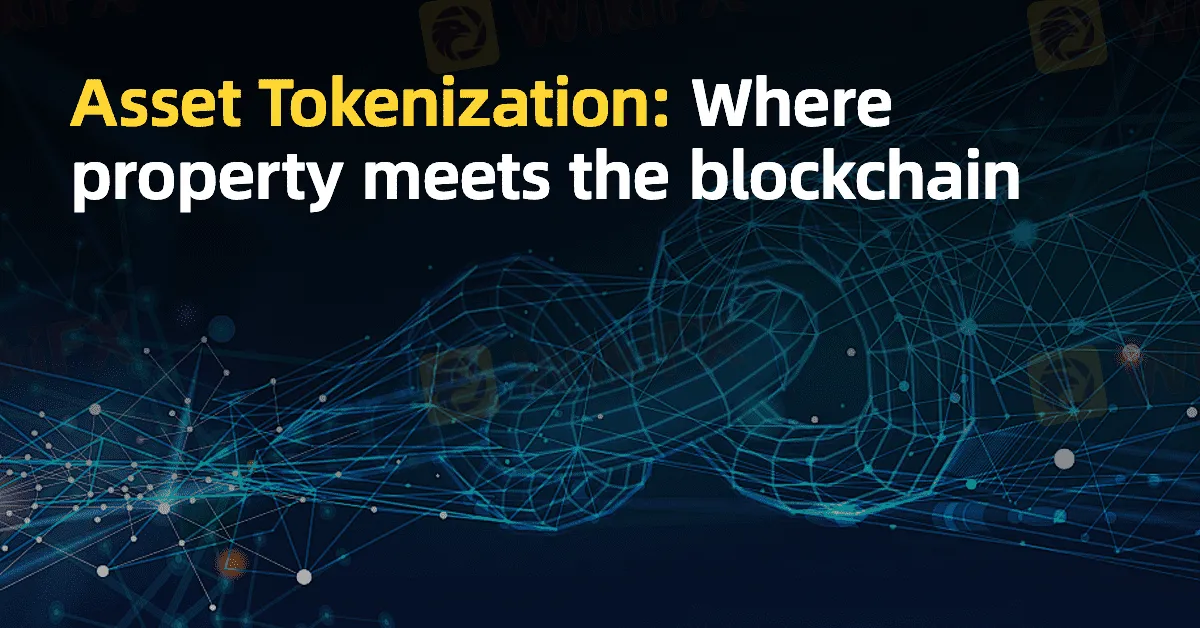简体中文
繁體中文
English
Pусский
日本語
ภาษาไทย
Tiếng Việt
Bahasa Indonesia
Español
हिन्दी
Filippiiniläinen
Français
Deutsch
Português
Türkçe
한국어
العربية
Asset Tokenization: Where property meets the blockchain
Abstract:Asset tokenization is the innovative process of transforming rights to both physical and digital assets into digital tokens on a blockchain.

Understanding Asset Tokenization
Asset tokenization is the innovative process of transforming rights to both physical and digital assets into digital tokens on a blockchain. This process can generate fungible tokens, which are interchangeable, or non-fungible tokens (NFTs), representing distinct assets. The choice of token type hinges on the nature of the asset and its intended application. By enabling tokenization, we can enhance traditional ownership verification methods—like deeds and titles—allowing for more accessible fractional ownership. For instance, tokenizing a commercial property could enable multiple investors to own shares in that property.
Advantages of Asset Tokenization
1. Tokenization allows assets to be divided into smaller, tradable units, facilitating shared ownership among multiple investors.
2. By enabling fractional ownership, tokenization opens the door to asset investments for individuals across various financial backgrounds.
3. Tokenized assets can be more easily traded, potentially enhancing market liquidity.
4. The transparency inherent in blockchain technology ensures that all participants have access to the same information.
5. By reducing the need for intermediaries, tokenization could lower the costs associated with buying and selling assets.
Challenges of Asset Tokenization
1. Legal Recognition Issues: Current legal frameworks may not recognize tokenized asset ownership, creating challenges in enforcement.
2. The rapidly changing landscape of laws surrounding tokenized assets can complicate compliance and diminish investor protections.
3. Tokenized assets, particularly those traded on secondary markets, may experience significant price fluctuations, risking investor capital.
4. Unique assets can be difficult to value accurately, complicating investment decisions.
Conclusion
Asset tokenization marks a transformative step forward in merging real estate with blockchain technology, providing exciting prospects alongside significant hurdles. As this field evolves, stakeholders can explore how fractional ownership and enhanced accessibility can reshape investment landscapes, all while navigating the complexities of regulation and market integration.

Disclaimer:
The views in this article only represent the author's personal views, and do not constitute investment advice on this platform. This platform does not guarantee the accuracy, completeness and timeliness of the information in the article, and will not be liable for any loss caused by the use of or reliance on the information in the article.
Read more

WikiFX Review: Is FxPro Reliable?
Founded in 2006, FxPro is a reputable UK-based broker, trading on various market instruments. In this article, we will help you find the answer to one question: Is FxPro reliable?

Geopolitical Events: What They Are & Their Impact?
You've heard many times that geopolitical events have a significant impact on the Forex market. But do you know what geopolitical events are and how they affect the FX market? Let us learn about it today.

Why Do You Feel Scared During Trade Execution?
Trade execution is a pivotal moment for traders. It is when analysis turns into action, and potential profits or losses become reality. However, for many traders, this moment is accompanied by fear. Why does this happen, and how can you address it?

WikiEXPO Global Expert Interview: Simone Martin—— Exploring Financial Regulation Change
In the midst of financial innovation and regulation, WikiGlobal, the organizer of WikiEXPO, stays abreast of industry trends and conducts a series of insightful and distinctive interviews on pivotal topics. We are delighted to have the privilege of inviting Simone Martin for an in-depth conversation this time.
WikiFX Broker
Latest News
ASIC Sues Binance Australia Derivatives for Misclassifying Retail Clients
Geopolitical Events: What They Are & Their Impact?
Top 10 Trading Indicators Every Forex Trader Should Know
WikiFX Review: Is FxPro Reliable?
Malaysian-Thai Fraud Syndicate Dismantled, Millions in Losses Reported
Trading frauds topped the list of scams in India- Report Reveals
Why Do You Feel Scared During Trade Execution?
Revolut Leads UK Neobanks in the Digital Banking Revolution
Fusion Markets: Safe Choice or Scam to Avoid?
SEC Approves Hashdex and Franklin Crypto ETFs on Nasdaq
Currency Calculator


